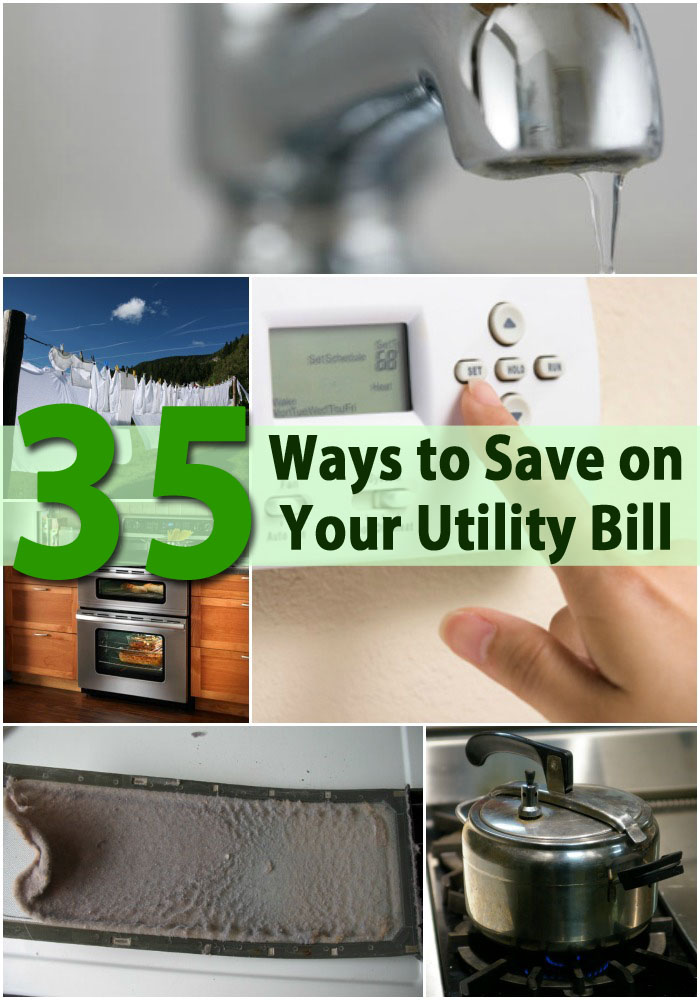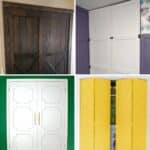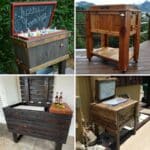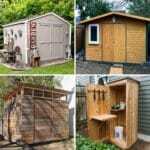Everyone needs ways of saving money from time to time and one of the most costly expenses for most households is the electric bill. particularly during the summer or winter months when you run your air conditioning or heating unit a lot, it is important to know ways of bringing down costs associated with electricity. There are many things that you can do to save electricity and ultimately save money. Most of these take very little time and cost nothing.
- Turn down the thermostat – Or turn it up depending on the season. By turning your thermostat just 3 degrees up or down, you can save about a hundred bucks each year. If you normally keep it on 69 during the summer for instance, turn it up to 72. You won’t really notice the difference in temperature but you will notice it on your energy bill.
- Check your windows – Make sure that you keep your curtains or window blinds closed on really sunny days to keep out the sun and prevent your air conditioner from running. During the winter months, keep the curtains and blinds open to allow sunlight in which will keep your home warmer naturally.
- Unplug when not in use – When you are not using electronics, unplug them. Even when they are turned off, they will continue to use energy if they are plugged in.
- Check for air leaks – Leaks around doors and windows can cause your heating/cooling unit to work overtime. Ensure that all windows and doors are properly closed and that there are no leaks allowing outdoor air inside.
- Change your light bulbs – There are a number of energy efficient light bulbs on the market and while they may be a bit more expensive initially, they will help you to save hundreds on your light bill over the course of a year or so.
- Change filters regularly – Keeping your heating and cooling unit properly maintained is essential. Make sure that you change your filters regularly to keep the unit from overworking.
- Choose appliances wisely – If you are buying new appliances, make sure that you are getting energy efficient models.
- Use smaller appliances – Larger appliances will naturally use more energy. Simply using the microwave as opposed to the electric oven a couple of times each week or choosing smaller lamps instead of using your overhead lights will help you to save as well.
- Turn down the heat – Turning down your water heater to 120 degrees will help you to save every year as well.
- Insulate – Make sure that you have adequate insulation, not only in your walls but around your water heater as well.
- Choose cold water – When washing clothes and doing other tasks, choose cold water when you can to help lower energy usage.
- Use lids when boiling – When you try to boil water in an uncovered pot, it takes longer which takes more energy. Putting a lid on the pot will bring water to a boil faster and save electricity. Just remember to keep an eye on the pot so that it doesn’t boil over.
- Turn off the oven – When baking, turn your oven off about ten minutes before the cooking time requires and let the heat that is still in the oven finish baking your foods.
- Use a pressure cooker – Pressure cookers are not only convenient, they are efficient. You can cook in less than half the time and save time and money.
- Fill it up – Always make sure that your dishwasher and washing machine are full before you run a load. Washing smaller loads uses energy that you could save by just waiting until you have enough for a full load.
- Set the right temperature – Make sure that your freezer and refrigerator are set at the right temperatures.
- Don’t open the door – Unless you are reaching in for something, never repeatedly open and close the refrigerator. Make sure that you know what you are going after before you do open so that cold air does not escape and cause the fridge to run more than it should.
- Placement is important – Your freezer and/or refrigerator should be placed away from your stove and preferably in an area that does not get direct sunlight.
- Check the seals – Your fridge door should seal airtight. If it does not, you may need to replace the rubber seal that keeps cold air in and warm air out.
- Clean the lint trap – Keeping the lint trap in your dryer clean is not only good fire prevention, it can also help your dryer to run more efficiently.
- Use a clothesline – There is nothing better than freshly dried clothes from a clothes line. If weather permits, hang clothes outside to dry and save the energy that your dryer would use.
- Turn the water off – When shaving or brushing your teeth, don’t allow water to run unless you are actually using it for rinsing.
- Repair leaky faucets – Faucets that leak not only waste water, they waste the energy that it takes to heat water. Make sure your faucets are operating properly without leaks.
- Turn off the lights – Your mother probably told you to turn off the lights when you are leaving a room. This rule still applies. Always turn off lights when leaving a room and during the daytime, leave lighting off and just use natural light to see.
- Cook outdoors – During summer and anytime it’s warm enough, use your outdoor grill to cook instead of kitchen appliances. Not only does this save energy, it’s tasty.
- Paint the roof – Studies have shown that by simply painting your roof white, you will use up to 40 percent less energy to cool your home. This means you could save more than $100 every year just by painting the roof white.
- Check your bill – You should always check your electric bill to make sure that it is accurate. Pay attention to the usage that is reported on your bill and monitor that against your meter to make sure that you are not paying for energy you are not using.
- Use a fireplace – During the winter months, use a fireplace if you have one to help heat your home without having to increase your thermostat temperature.
- Bake at night – During the warmer months, it is best to bake at night when outdoor temperatures are lower.
- Dust – Keeping light bulbs dusted will help them to better light your home and keep them more energy efficient. Once each week, take a feather duster to overhead lights and lamps to remove dust.
- Use the dishwasher – Ok, so this one is a double benefit. If you have a dishwasher, it is actually more energy efficient to use it than it is to wash dishes by hand. And of course, we won’t argue with that.
- Close doors – If you are not using a room, keep the door closed. This helps the heating and air conditioning unit to conserve energy. You can actually shut off vents in those rooms to help lower energy costs as well and then just open the vents when you plan to use the room.
- Cover leftovers – When you place uncovered liquids in your refrigerator, it causes vapors to be emitted that will add to the workload of the compressor, making your fridge use more energy. Plus those liquids tend to smell and taste like other foods in the fridge so it’s best to keep everything covered.
- Use chest type freezers – Chest type freezers tend to use up to 30 percent less energy than upright models so if you are buying a new freezer, opt for a chest type.
- Take a shower – Showers use up to 50 percent less energy than tub baths. If you must have a soak, limit your baths to once each week and take showers otherwise.
We would love to hear other ideas for conserving energy and saving money. If you have an energy efficient idea, feel free to share with us.






Erin
Don't forget the '15 minute rule' when you use flouresant lights... turn them on for at least 15 minutes before shutting them off again. Dont walk into a room and turn them on just to turn them off in a few minutes when you leave the room. 🙂
Deepika@swiftcodesofbanks
Great article...18W CFLs use 76% less energy than 75W incandescent equivalents. Over the course of a year, that can add up to $8-$15 in savings per bulb replaced, so we must replace 75W Light Bulbs with 18W CFLs to save your money.
Sally
I must totally agree this awesome and effective tips. I've tried few of them and really it worked. We should always bear in our mind that saving energy is very important to both human and nature. We can save money and at the same time we can help our environment to make it healthier.
Jacque williams
A fireplace is not the most energy efficient as a lot of the heat goes up the chiminey even when in use. I found that even when in use it takes more wood to use a fire place than a wood stove. I I bought a woodstove insert for the fireplace and it paid for itself during the first year. I use the fireplace as the main heat source for heat in my cabin so this reduced the heat cost to 0.00 I spent $3,000 for the stove and the first year before the stove I spent $1500 for propane. Now three years later I spend $300 per year for propene for cooking
Hailey
I have to agree with your list. The biggest one for me was setting up the power options on my computer so I use less electricity all the time. Every dollar counts!
Save Electricity in Summer
I'd like to add one, try to switch with renewable power sources if available. I can guarantee that it would be helpful in saving energy. I also tried some of your tips, but I totally love the idea of installing solar panels for effective results. Thanks for sharing.